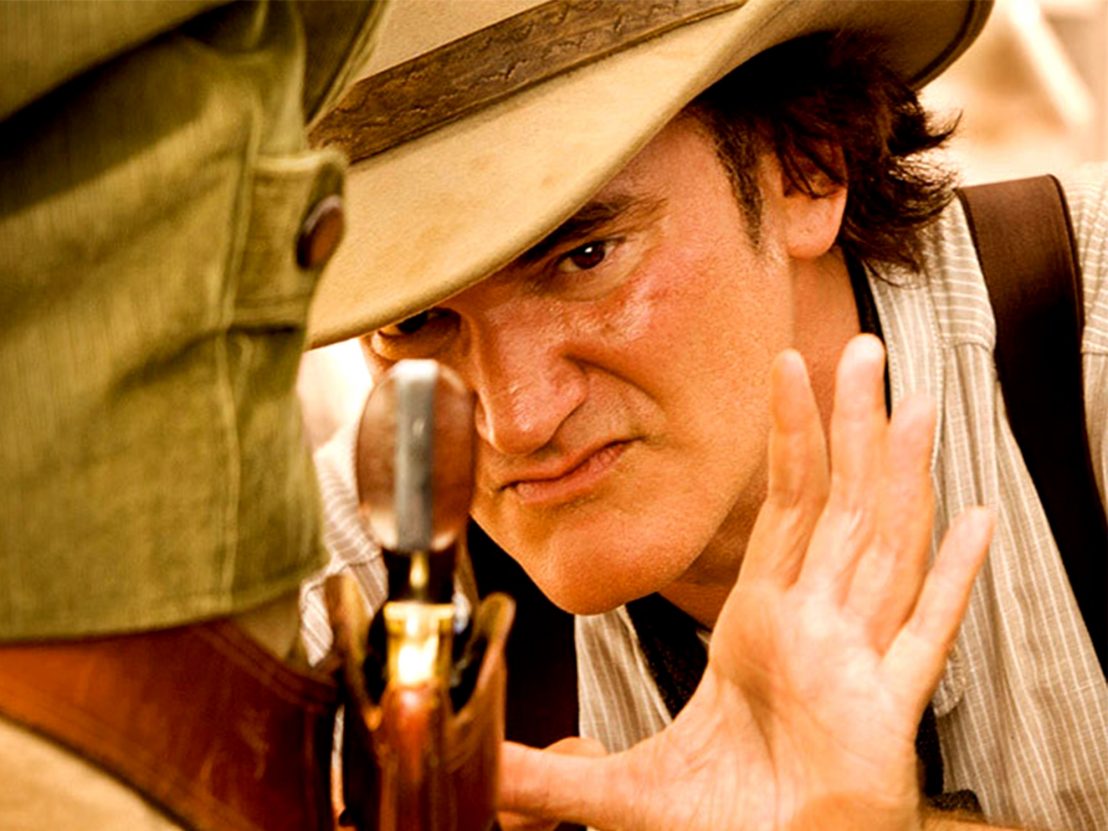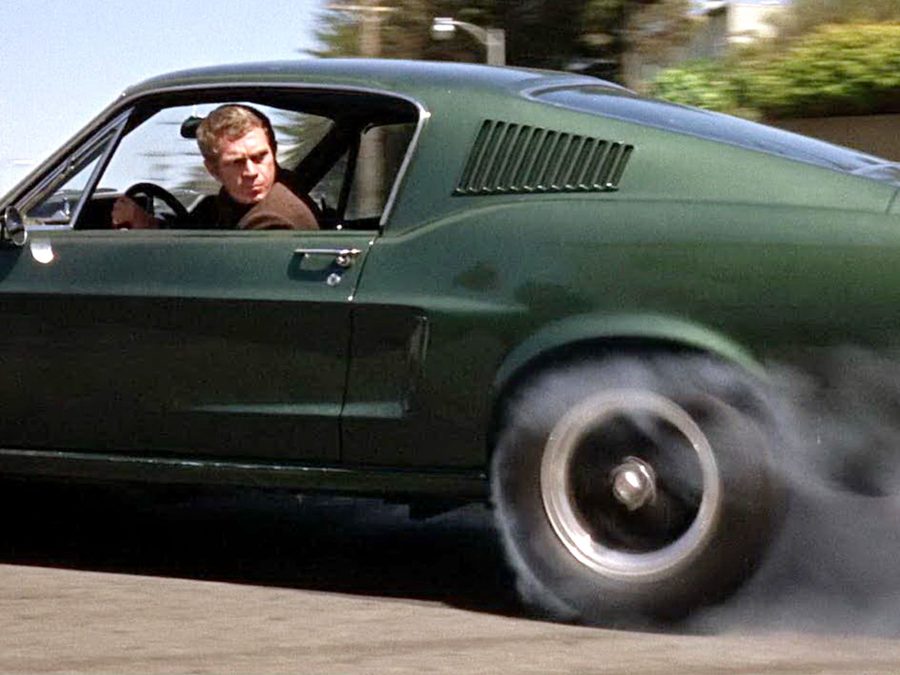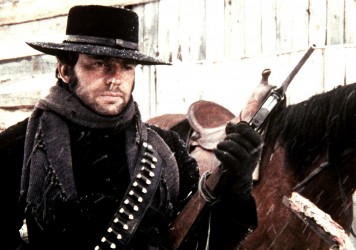
One of the cardinal sins of film criticism, and one of the bad habits you need to flush from your system in the early days of writing, is telling the reader how you would have improved upon a film had you made it yourself. It’s so easy for that teetering soapbox of editorial authority to expand the head of some trigger-happy greenhorn and turn a near-the-knuckle critique into a practical to-do list for a seasoned director. From my position as a magazine editor, I can deliver this surprising nugget: a lot of people do this.
‘Cinema Speculation’, the debut non-fiction book by loquacious bro-teur Quentin Tarantino, makes the act of flouting that cardinal sin into a badge of honour. Here, the author delivers his homespun and (amusingly) potty-mouthed version of film criticism from a higher plateau than the soapbox – the supreme vantage of the director’s chair. This means he can tell you how he would have improved your movie, and more often than not, he will. “Yo, Martin Scorsese – you’re doing it all wrong!” More on that soon…
And so this is not really a volume of criticism. Despite a professed, insistent and earnest love of cinema, this is a strangely passionless affair, with the author apparently opting for a prose style of strained seriousness – a little like when Homer Simpson puts on half-moon glasses to type an official letter. Search if you dare for the wordsmith behind some of the most lauded and radical screenplays of the modern age, but he’s most assuredly MIA in the pages of ‘Cinema Speculation’, which comes across as a more introverted and subjective version of Martin Scorsese’s superior, ‘A Personal Journey with Martin Scorsese Through American Movies’, and one that at times recalls ‘I, Partridge’, the score-settling pseudo-memoir by fictional Norwich-based media personality, Alan Partridge.
It’s entertaining and infuriating, revelatory and repetitive, provocative and boorish, often within the same sentence, sometimes the same clause. Indeed, a reader might speculate of this book that no editors were allowed to offer feedback on the text, as chapters get lost in a vortex of digressions and asides before abruptly ending and moving on to something more important. There’s a stream-of-consciousness, first draft energy to the text that limits the potential charm factor.
As such, there’s no grand theme or overarching thesis. This is an ambling walking tour through QT’s private obsessions, and as such, variation is sometimes a little thin on the ground. As a reader excited at the prospect of this particularly erudite filmmaker expounding on a selection of individual movies, I’d be lying if I didn’t say that I encountered the majority of chapters with a resigned sigh of disappointment. That’s not to say the chapters themselves were disappointing, but there’s definitely a sense that Tarantino develops myopic fixations on certain stars and directors, and so following a full chapter in praise of Steve McQueen in Peter Yates’ Bullitt, we have another chapter in praise of Steve McQueen in Sam Peckinpah’s The Getaway. As we know from his movies, Tarantino is no slouch when it comes to changing the record, but he sure as hell ain’t doing so here.

It’s telling that Tarantino offers up no rhyme or reason for writing this book – the motivation is divine right, a belief that his scads of acolytes need to soak-up his seasoned postulations on a selection of formatively inspirational movies from the QT memory jukebox. He spends much time in the book feathering out his cinephile bona fides, from mentioning how many times he’s seen films (and the venues in which he’s seen them), to building out of web of celebrity connections by buttressing each mention of an obscure actor’s name with a select filmography of personal favourites. It never comes across as arrogant as it’s clearly a reflection of his esoteric personal passions, but aside from the odd catty one-line assessment, it doesn’t always make for massively exciting reading.
The book opens with a fond recollection of his pre-teen years as a dweeby carpetbagger on his mother and step father’s cinema date nights. He tells of how they would bundle little “Quint” along to evening double bills and, at the age of six, and he would lap up the images and the excitement without gleaning much meaning from the experience. John G Avildsen’s salty class parable, Joe, and Carl Reiner’s comic farce Where’s Poppa? was the first big twofer, and there’s something fascinating in reading about how these films served to flip a switch in Tarantino’s young brain and instigated a life-long obsession.
This account of his early years segues directly into the chapter-length explorations of individual films, with a couple of themed chapters thrown into the mix which make for more interesting reading. The strongest chapter in the book is one where he focuses on his relationship to critics, and his fondness for one in particular: the LA Times’ second-string reviewer Kevin Thomas, who would cover all the world, genre and exploitation titles that became grist to QT’s mill.
He reproduces a number of Thomas’s pithy and astute reviews, which serve to make his own criticism feel lacklustre and unfocused by comparison. In praising Thomas, he also reveals his loathing for the LA Times’ other film stringers: the lesser-known Sheila Benson, whose reviews he scathingly compares to reports written by a house-wife attending night school; and Kenneth “Kenny” Turan, one of the lone soldiers who regularly panned Tarantino’s films in print – an act for which the author appears to have taken great umbrage (cf Alan Partridge).
Tarantino namechecks his love of Pauline Kael on numerous occasions, but he lacks her scintillating prose style, and a desire to examine the form and composition of films rather than the acting and script. There’s nary a moment in the book where he explores the aesthetic of a film, or the sublime visual capacities of the medium (an area in which Scorsese excels).
He’s more interested in production histories, script-to-screen transitions/amendments and, per the title, speculating on what a film could have been rather than what it is. Indeed, there’s an entire chapter (an oddly unedifying one) dedicated to what Taxi Driver would have looked like had Brian de Palma (who Paul Schrader showed his script to first) rather than Martin Scorsese directed it. It’s the same counter-historical impulse that has powered many of Tarantino’s later films, including Inglourious Basterds, Django Unchained and Once Upon a Time… In Hollywood.

On the note of counter-histories, it’s worth drawing attention to Tarantino’s shall we say “complex” representations and readings of race in both his films and in this book. Artists mature, they alter their worldview, and art can often be washed in and out with the cultural and historical tides. What ‘Cinema Speculation’ goes some way to prove is that Tarantino is still happy to adopt the crutch of authenticity (or, at least, his perception of what is authentic) to justify, say, the torrents of racial epithets which make re-watching his career-forging his early work more than a little uncomfortable. The reading here is, not only does he stand by that stuff, he would do it all again in a heartbeat.
In the chapter examining Taxi Driver, the author fixates on one aspect of the film which he believes would have improved it – or at least made it into a purer expression on its themes of political alienation and psychosis. Schrader originally had the character of Sport, the pimp played by Harvey Keitel who Robert De Niro’s Travis Bickle eventually guns down, as a Black character. Tarantino informs us that execs at Columbia pictures baulked at the notion, believing that having a Black pimp would have caused a race riot in cinemas, and that in casting a white actor, Scorsese shirked his political responsibilities as a filmmaker in the name of soft diplomacy.
Tarantino really hammers this home, and it’s perhaps this slightly excruciating insistence that Scorsese folded to artistic pressure (in a way that he didn’t when making, say, Django Unchained for Columbia) that encapsulates the volume as a whole. It’s a fascinating historical nugget, but the professed value of this speculative version of the film is backed up with flimsy arguments, including a troubling, Fox News-esque anecdote about how Keitel was unable to find a white pimp in New York upon which to base his character.
Would it really have been a great idea to have Travis Bickle massacre a house full of Black men at the climax of Taxi Driver? And in the pages of this book, does Tarantino really have to put anything on the table to fervently state that it would? He uses “speculation” here as a smokescreen, where raising the stakes of violence and political provocation equates directly to his own warped version of moral seriousness, which is both telling and worrying. One might speculate that Scorsese himself will read these passages with a sense of bemusement (to put it lightly).
Relatively speaking, ‘Cinema Speculation’ makes for goofily enjoyable reading and offers stealth rather than direct insight into its author’s artistic psyche. It’s in the spirit of the book when I say I’d have rather read about a more diverse array of films, though there are killer chapters on John Flynn’s post-Vietnam PTSD revenger, Rolling Thunder, and Tobe Hooper’s fairground slasher horror, The Funhouse. And I was reading with notebook at hand, jotting down recommendations of all the obscure ’70s American B-movies which receive a cursory QT thumbs up, and which the director, bless him, inevitably saw five times on their original cinema run.
Yet if Tarantino does deliver on a promise to retire after his next movie, it would perhaps be worth pivoting to podcasts or radio than books, as so much of the material here requires the subjective voice of personal opinion. In the end, ‘Cinema Speculation’ amounts to a little less than the sum of its lovable eccentricities.
‘Cinema Speculation’ by Quentin Tarantino is available now via Weidenfleld and Nicholson.
Published 8 Nov 2022

The director’s own professed black sheep is his most beautiful work.

Accusations that the director’s work is misogynistic for enacting violence against women are wide of the mark.

If you liked The Hateful Eight you’ll love Sergio Corbucci’s 1968 film that inspired it.